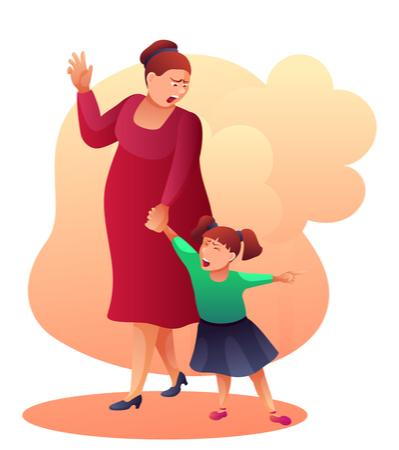How Can I be Sure I Remember Accurately? The Story of Family Scapegoating
 Case:
Case:
A young mother referred herself to me after reading my article on Scapegoating. She remembered being scapegoated by her family as a child, first by her parents and secondly by her siblings. What brought her to therapy was that they continued to blame her for every problem in the family. Ultimately, she had to severely reduce the number of visits to her mother’s house and avoid many family holidays because of the hostility she repeatedly encountered. Yet, the greatest despair she felt had to do with the fact that she wanted her family and wanted her children to know them as well.
Does this case sound familiar? Does it seem to be what repeatedly happens to you? Does it seem as though I’m talking about you or violating private confidence? It’s understandable that you, the reader, might think that way. The case itself is fictional but represents what patients have presented to me when they begin psychotherapy.
Scapegoating is a form of abuse in which the child and, later, the adult, is blamed for every problem in the family. Usually, family members, Parents, siblings, uncles, and aunts join together in placing blame on this one individual. Generally, scapegoating is associated with addiction in the family. In this scenario, the addiction is ignored or denied and attention diverted to one family member who becomes the target of blame.
Over the years, many people came to me complaining about just this type of abuse. During the course of many of these psychotherapies, I am confronted with this angry question: “Well, how do I know I remember my childhood correctly? The finger of accusation is sometimes pointed at me with the demanding question: why should you believe me; how do you know I’m right?
It should go without saying that I don’t know who is right or wrong. What I do know is that this is what is the truth to my patient. Memory is a fragile thing. We know if confabulates over the years. Confabulate means the different memories become pressed together in the mind and become one.
My point for this article is that it doesn’t matter. How a person feels and believes about their childhood is all that matters. I am quite certain that, in most of these circumstances, parents and siblings would have different memories, explanations, and feelings. They are not lying, which is what some patients come to believe but just do not share the same experience. It is almost as though all of us grow up in different households from our siblings.
After all, no two or three or more people can occupy the same space at the same time. In addition, our memories work differently. Each person has a different nervous and sensory system. Each person has a different brain. Each person has a different sensory system. The very same food that tastes delicious might seem awful to another individual. In criminal court cases, even eyewitness testimony is not taken as the absolute truth because memory deteriorates and memory is influenced by how well a person sees, hears and feels at the time. The fact is the way you remember, and the feelings and sensations associated with it are part of you. No one has a right to tell you that your memories are accurate or not because they are your memories.
In the context of psychotherapy, we take the patient where he or she is and work from there. Cognitive Behavioral Therapy does not look at how a person remembers something but, rather, how they think. In psychodynamic therapy all that matters are how a person is functioning and how to improve that functioning. None of us can or should make judgments about how and what a person remembers.
Help is available. Please visit Allan Schwartz at http://www.allanschwartztherapy.net
And by email at [email protected]
